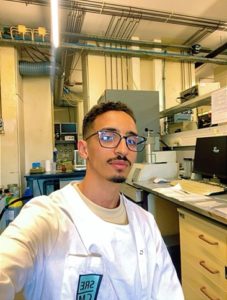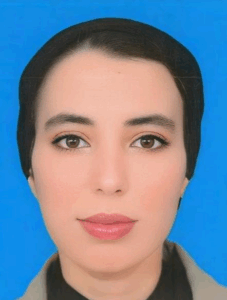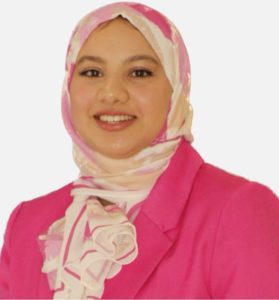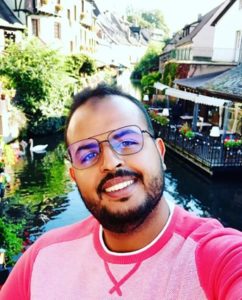Meet some of the the authors of the runner up paper
Novel chemically reduced cobalt-doped g-C3N4 (CoCN-x) as a highly heterogeneous catalyst for the super-degradation of organic dyes via peroxymonosulfate activation
Aboubakr Ben Hamou, Mohamed Enneiymy, Salaheddine Farsad, Asma Amjlef, Ayoub Chaoui, Nisrine Nouj, Ali Majdoub, Amane Jada, Mohamed Ez-zahery and Noureddine El Alem
 |
Aboubakr Ben Hamou is a PhD student, where he is affiliated with the Laboratory of Materials and Environment (LME). The research over his academic background spans the fields of Materials Chemistry and Environmental Chemistry being part of LME, with short stays at BIOSUV group in Spain, IS2M in France, and ALiCE/LSRE-LCM groups in Portugal. He focuses on environmental remediation, in the areas of wastewater treatment, adsorption, and advanced oxidation processes. He is also involved in the synthesis of carbon materials, metal-organic frameworks and composite materials. Additionally, his work includes material characterizations to understand the properties and performance of materials in treating pollutants and environmental sustainability. |
 |
Dr. Asma Amjlef holds a PhD from the Laboratory of Materials and Environment. Her research focuses on the development of hybrid composite materials for the removal of organic pollutants from water. She is particularly interested in sustainable water treatment solutions using adsorption techniques and advanced oxidation processes (AOPs) to enhance purification efficiency and environmental compatibility. |
 |
Professor Nisrine Nouj holds a PhD in physical chemistry from the Faculty of Sciences at Ibn Zohr University in Agadir. She is the winner of the 2023 L’Oréal-UNESCO For Women in Science Young Talent Award. She joined the teaching staff in 2023, where her work focuses on water analysis and quality and the development of innovative treatment methods using environmentally friendly biomaterials. She specializes in the detection of emerging pollutants and the development |
 |
Dr. Mohamed Enneiymy is currently working in Laboratory of Organic and Physical Chemistry, Applied Bioorganic Chemistry Team, at Ibnou Zohr University. He holds a Ph.D. in Organic Chemistry from the University of Haute-Alsace-University of Strasbourg, France. His research focuses on the synthesis and characterization of bio-based heterogeneous catalysts containing palladium or Pd/M alloy nanoparticles (M = Co, Ni, Au, Ir, etc.) and the evaluation of their catalytic activity in C–C cross-coupling reactions such as Suzuki, Heck, Sonogashira, and Hiyama, as well as in green carbonylation and mild hydrogenation processes. These catalytic systems are developed for the efficient synthesis of intermediates with potential biological activity. |
What excites you most about your work right now?
Asma Amjlef: I’m particularly excited about developing multifunctional, bio-based materials that can simultaneously adsorb and degrade pollutants, offering a more sustainable and effective approach to water purification.
Nisrine Nouj: The possibility of combining advanced experimental techniques with artificial intelligence to accelerate the discovery of sustainable materials.
What do you think of Materials Advances as a journal for publishing in this field?
Asma Amjlef: Materials Advances offers excellent visibility and a strong multidisciplinary platform for emerging research in materials science. It provides a great opportunity to share innovative work with a wide scientific audience.
Nisrine Nouj: Materials Advances is a dynamic and open-access journal, well-suited for young researchers to publish innovative and interdisciplinary work with good visibility.
Do you have any advice for early-career researchers?
Asma Amjlef: Stay curious, be persistent, and don’t hesitate to explore interdisciplinary approaches. Collaboration and continuous learning are key to impactful and fulfilling research.
Nisrine Nouj: Be curious, ask questions, surround yourself with inspiring mentors, and don’t be afraid to explore topics at the interface of disciplines.














